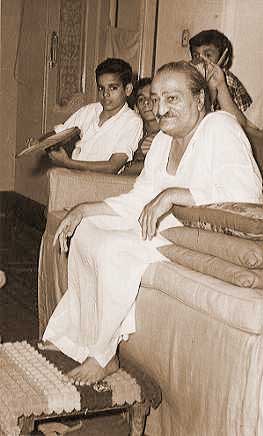
Explaining to one woman devotee about slander, Baba cited this couplet of Kabir:
“He who slanders me is my friend
because with his own soap he cleanses me of my dirt!”
“So,” Baba emphasized, “the first thing required is love. And the second is do not backbite.”
He added, “Feel glad if anyone slanders you, and always be careful that you don’t slander others.”
The woman said, “Baba, I don’t slander anyone.”
“It is good if you don’t slander anyone. But generally, he who drinks liquor says: ‘Do I get intoxicated? I am never drunk!’…
Baba explained:
If anyone speaks about another’s shortcomings behind his back, even though what he says may be true, it is slander.
What effect do the sanskaras of backbiting produce? Suppose Mr. A says to Mr. B: “Mr. C has not come; he is a bad man.” Mr. C is not present. Mr. A has told this directly to Mr. B. Consequently, there is an exchange of sanskaras in an indirect way between Mr. A and Mr. C, and in a direct way between Mr. A and Mr. B. Thus, the sanskaras of slandering are of two types – direct and indirect. Thereby, the most minute sanskaras are created and for millions of births it is difficult to be freed from them.
Sanskaras are of seven colors. Sanskaras of lust and anger have different colors, and the sanskaras created by backbiting are still deeper. We do not know them as such, but they are some of the worst type and nearly impossible to eradicate. Viruses are very subtle germs and invisible, but they are the most troublesome. Similarly, the sanskaras of calumny and defamation are most wicked and troublesome.
Therefore, do not defame or vilify others. If someone does it to you, you should be pleased. If someone kicks you, press his leg. What Christ has said about presenting the other cheek [if slapped] has meaning. If you love, you cannot slander. So try to love all.
www.lordmeher.org, p4667
April, 1960; Guruprasad